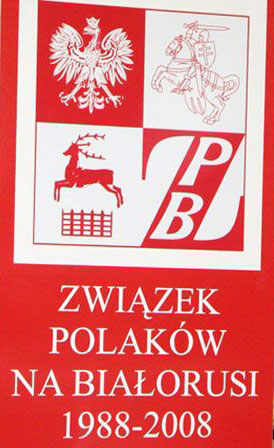Hrodna: tax inspectors sue for liquidation of ‘Polonika’ firm
The head of the tax inspection of the Leninski District of Hrodna went to law proposing to initiate the bankruptcy proceedings against the Polonika firm.
Polonika works at the unrecognized Union of Poles. Following the results of tax audit, the tax inspection fined the firm about $40,000. The firm failed to pay the fine, RFE/RL reports.
Polonika was fined because the firm had received aid from Wspolnota Polska, an organization maintaining contacts with Poles all over the world.
The court decided the money from Wspolnota Polska should be considered as humanitarian aid, not as an economic contract, which requires different taxes. Polonika’s staff disagrees with the court decision.
The activist of the Union of Poles Anrei Pachobut says the firm and Wspolnota Polska had signed an economic contract, money had been transferred to Polonika’s account, taxes had been paid, but suddenly they were said it was humanitarian aid. He says the decision of the court couldn’t be called legal and presents his arguments.
‘How did the court found humanitarian aid the money we paid taxes on? Why didn’t the court issue a special ruling to punish the officials, the bank for they had accepted the taxes not on humanitarian aid but on the economic activity?’ the activist wonders.
Anzhalika Arekhva, the head of the unrecognized Union of Poles, says almost 400 people took classes in Polish since the beginning of the year. Most of them were schoolchildren from Hrodna and Hrodna district. The fee for the classes was insignificant.
‘The whole course, nine months, costs 280,000 rubles. Wspolnota Polska paid the rest. This was also considered humanitarian aid. The case is obviously political, it’s clear,’ Anzhalika Arekhva says.
Andrei Pachobut reminds how the trials were held and says even their barrister wasn’t allowed in the court room. He thinks the case is politically motivated. According to him, the Belarusian authorities have recently said the case was sent to the archives, but now it appears in the court again.
‘The Belarusian authorities swing in opposite directions. How can it be explained? Is this a strategy? They don’t have any strategies, but they have tactics: one time they do one thing, but another time they do something else,’ Andrei Pachobut wonders.


















